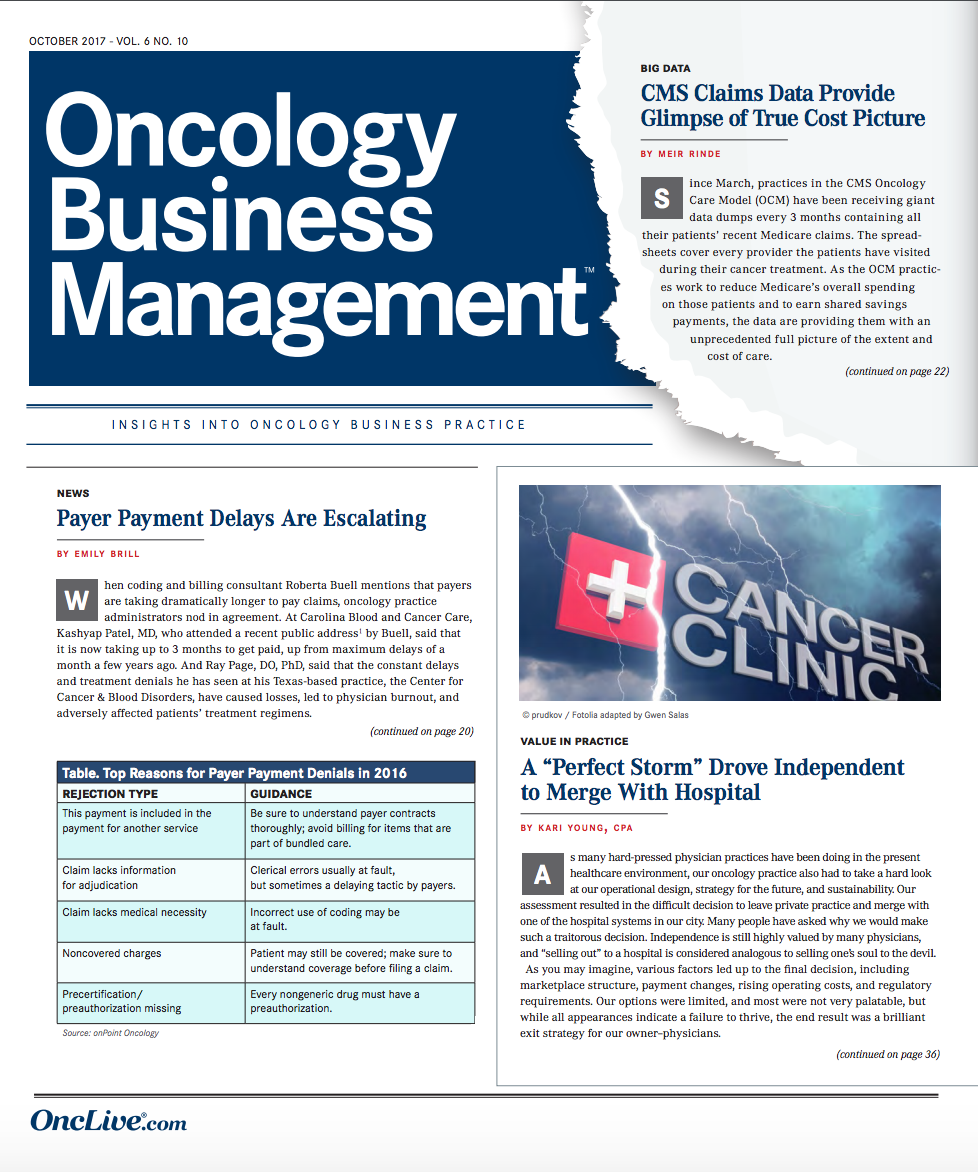Now Is the Time to Address the Looming Shortage of Oncologists
The Community Oncology Alliance has embarked on a journey to educate and inform the men and women undertaking hematology/oncology fellowships across the country about the employment choices awaiting them.
Mary Kruczynski
The Community Oncology Alliance (COA) has embarked on a journey to educate and inform the men and women undertaking hematology/oncology fellowships across the country about the employment choices awaiting them.
As Oncology Business ManagementTM readers may know, most Americans being treated for cancer are cared for in their own communities by independent oncology care teams. Such care is delivered not only at the highest quality but also at significantly lower cost compared with other care settings. And, as we all know, achieving that perfect balance of quality, value, and affordability is the universal challenge for tomorrow’s healthcare delivery system.
However, recent estimates suggest that by 2020 the country will experience a shortage of as many as 3800 oncologists. At the same time, with the aging patient population and a growing number of survivors, thanks to more successful cancer treatment, the need for oncology services will increase significantly. This community- based system can be sustained only if physicians completing the 3-year hematology/oncology fellowships are presented with independent practice as an alternative to employment with large teaching institutions or hospitals.
Recognizing this challenge, COA recently launched the Fellows Initiative, a multifaceted effort aimed at presenting the case for a career in private practice. COA will host free, local, interactive roundtables across the country, covering issues such as the current census and future outlook for hematologists and oncologists; educational opportunities; cancer care policy updates, such as the status of oncology payment models; career choices and guidance, including the interview process and the importance of employment contracts. Presentations are planned in Georgia, North Carolina, Ohio, Oklahoma, South Carolina, and Texas, with more to follow.
Fellows are also being invited to join COA members at regularly scheduled board of director meetings, Payer Exchange Summits, the annual Community Oncology Conference, and other key events. Limited scholarships are available to support travel and participation. To help fellows connect with community oncology practices, COA has created an exclusive Listserv and a regularly updated job board.
Launched earlier this month, the Fellows Initiative is off to a great start. COA member practices and state oncology societies contacted us in droves to host educational events in their states or post career opportunities. It is clear that community oncology practices are looking for the next generation of hematologists and oncologists. This initiative seeks to support them in finding and engaging those eager professionals.
We are extremely proud of this latest initiative under the COA umbrella. There is no place like home when you are sick, and strengthening the community cancer-care system for the future helps support our goal of keeping those fighting cancer close to their homes, families, and support networks.
Mary Kruczynski is director of policy analysis at COA and coordinator of the Fellows Initiative. If you are interested in scheduling a fellows educational event in your area, please write to maryk@coacancer.org.




